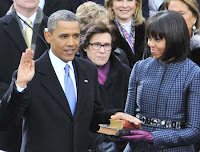Lewis on the assumption of skepticism
 I must admit that one of the difficulties I had in seminary was in the attitude contained within many of our (modern) texts (and professors) that I might call a 'bias toward skepticsm.' Whatever we said about the stories of Scripture, we surely (for some reason) could not take them at face value. They were guilty until proved innocent. We did not believe that a person such as David or Pontius Pilate, or a place such as Cana ever existed until we could find evidence for them.
I must admit that one of the difficulties I had in seminary was in the attitude contained within many of our (modern) texts (and professors) that I might call a 'bias toward skepticsm.' Whatever we said about the stories of Scripture, we surely (for some reason) could not take them at face value. They were guilty until proved innocent. We did not believe that a person such as David or Pontius Pilate, or a place such as Cana ever existed until we could find evidence for them. Why were not the ancient Biblical texts themselves evidence?
This same bias toward skepticism was to be found in numerous other fields beyond Biblical studies. We have no idea who wrote the Illiad...but it obviously was not Homer. Troy surely did not exist...because only ancient documents said so...until we found it.
It seems that the assumption of skepticism has, in the modern (and post-modern) academy, come to be equated with clear-eyed, rigorous, and 'critical' investigation. I certainly do believe in rigorous and probing investigation, but beginning with these presumptions ("of course the traditional understanding could not be true precisely because it is the traditional understanding") seems to me to hinder and needlessly bias rather than to aid in that investigation. I doubt this post will have too much impact on the Academy, but I was thinking (and laughing) about this problem recently when I read this C.S. Lewis quote (from "Religion without Dogma?" in reponse to Prof. Price's objections to miracles):
If I thus hand over miracles from science to history (but not, of course, to historians who beg the question by beginning with materialistic assumptions) Professor Price thinks I shall not fare much better. Here I must speak with caution, for I do not profess to be a historian or a textual critic. I would refer you to Sir Arnold Lunn's book The Third Day. If Sir Arnold is right, then the Biblical criticism which began in the nineteenth century has already shot its bolt and most of its conclusions have been successfully disputed, though it will, like nineteenth century materialism, long continue to dominate popular thought. What I can say with more certainty is that that kind of criticism - the kind that discovers that every old book was made by six anonymous authors well provided with scissors and paste and that every anecdote of the slightest interest is unhistorical, has already begun to die out in the studies I know best. The period of arbitrary scepticism about the canon and text of Shakespeare is now over: and it is reasonable to expect that this method will soon be used only on Christian documents and survive only in...the theological colleges.
I thought the bit about 6 anonymous authors of every old book well provided with scissors and paste was pretty funny (inciting flashbacks to my New Testament class in seminary).
Labels: C.S. Lewis, Education














